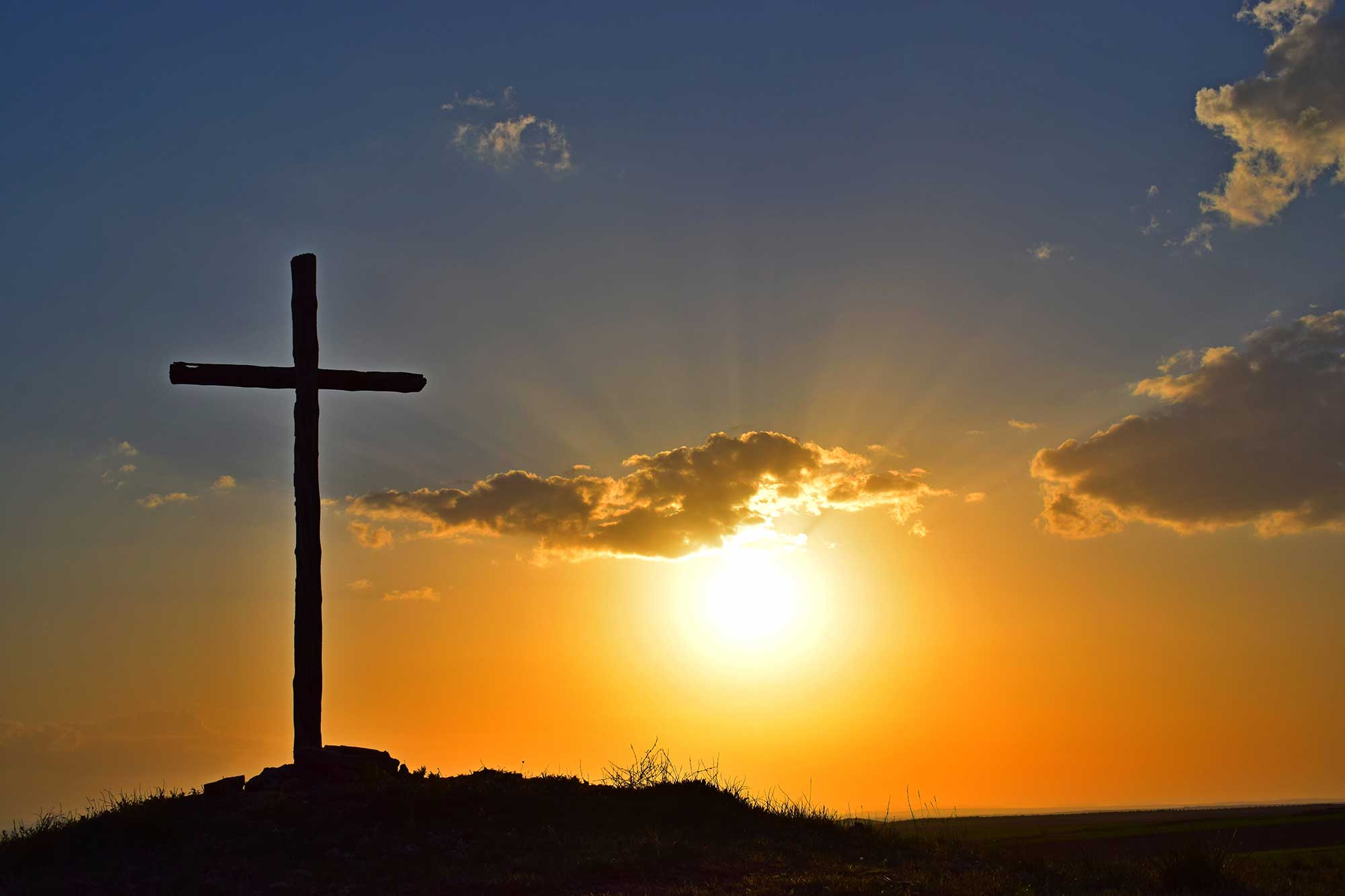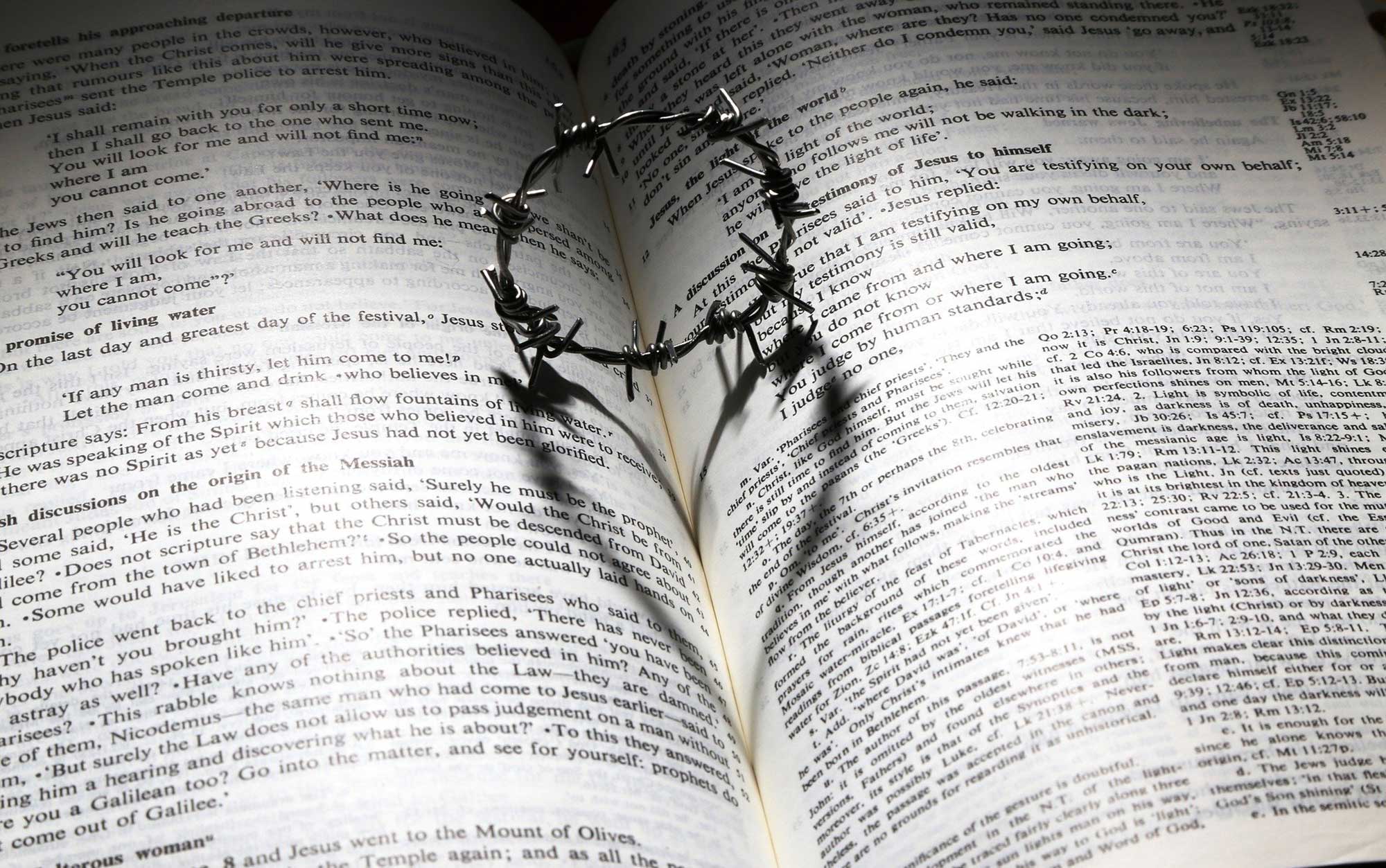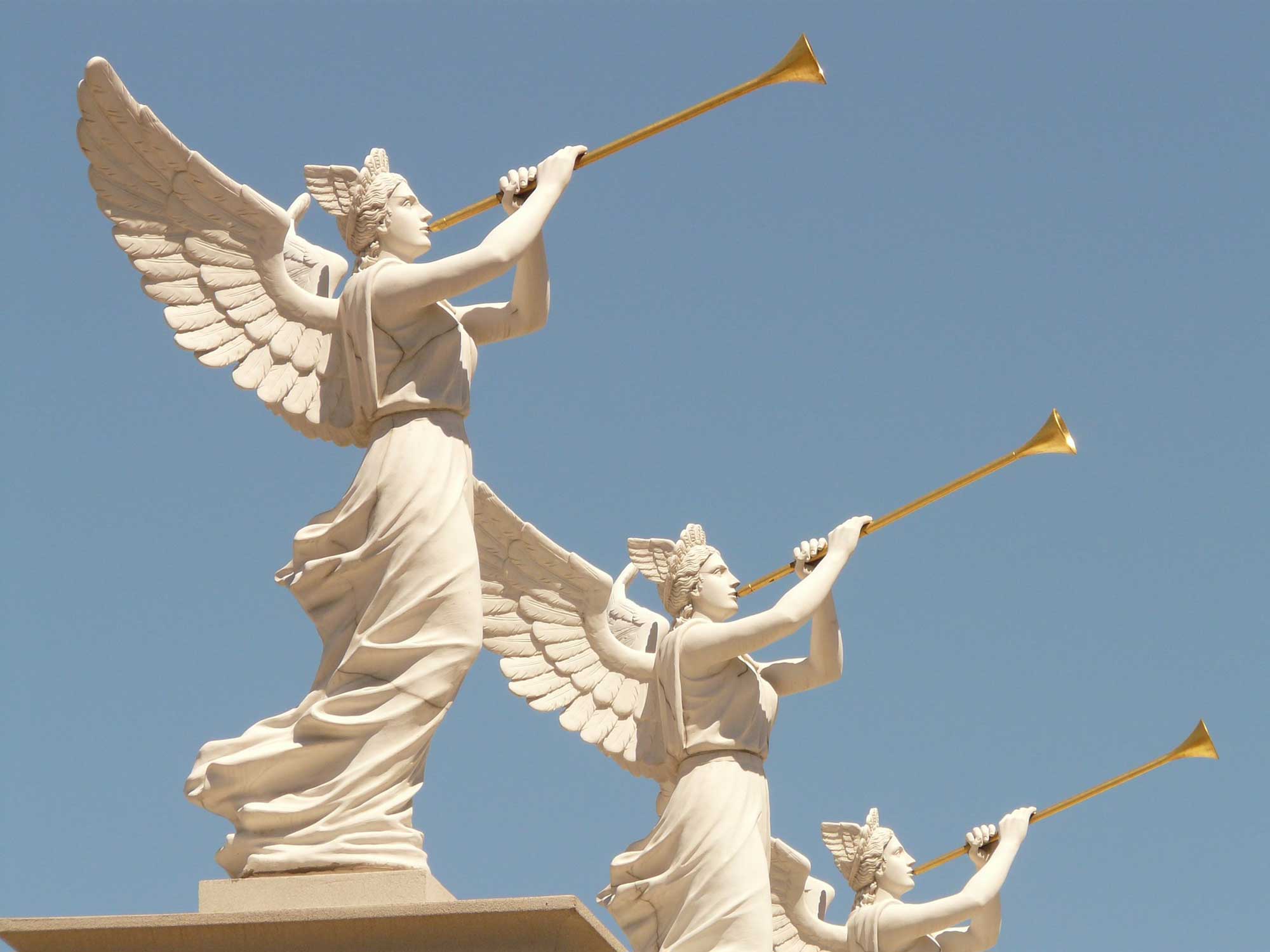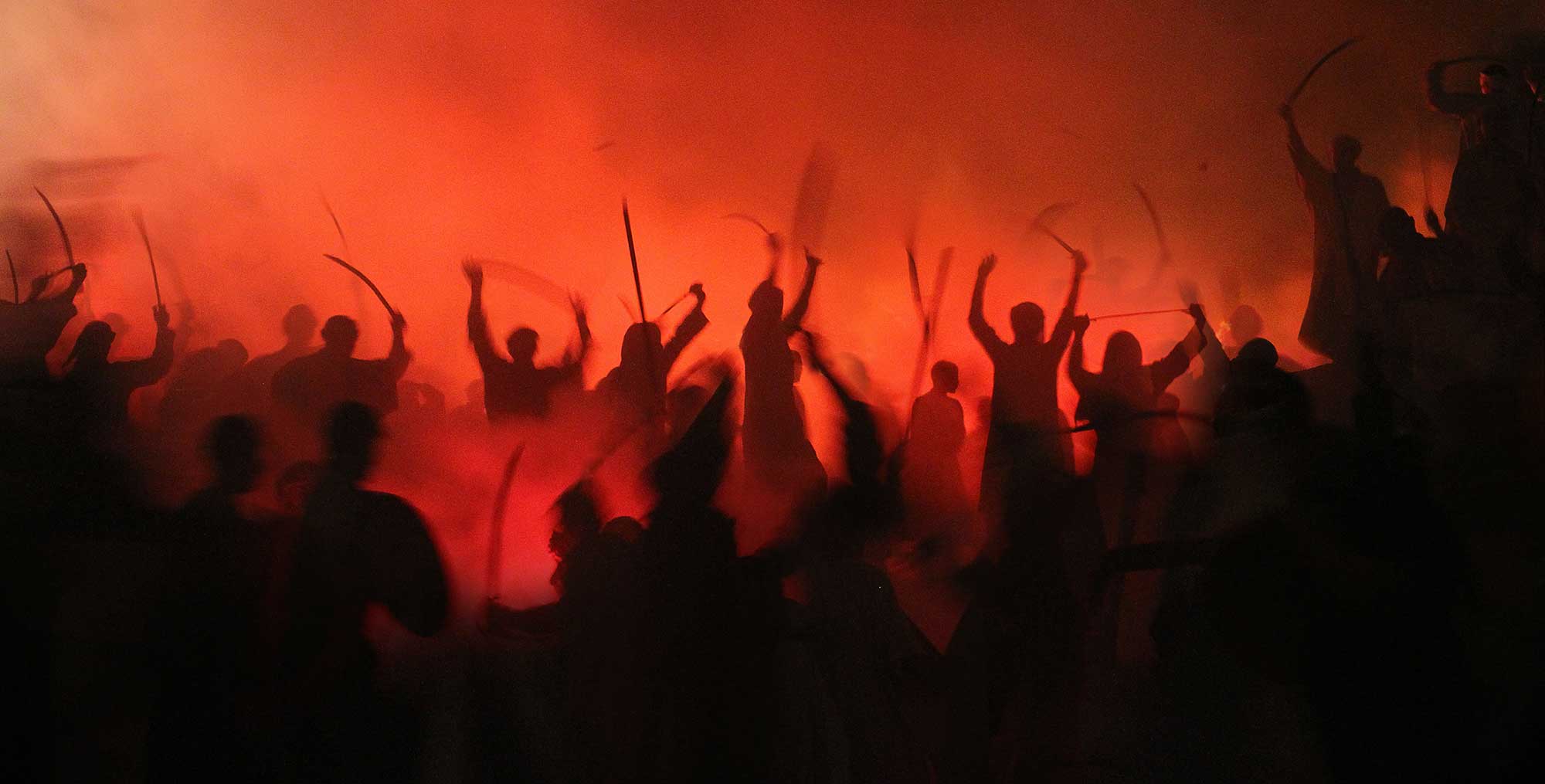
Revelation Hope – The Fifth and Sixth Trumpets
Looking Back on the First Four Trumpets
The seven trumpets are judgments on those who have martyred and persecuted God’s faithful people.
The seven trumpets carry a powerful message to those abused, neglected, and killed because of their faith.
The trumpets assure them God is actively confronting those who oppressed them.
And those judgments have already begun in this life.
Revelation 6:9, 10 reveals a cry from God’s people coming under the fifth seal imagery.
It is a cry heard throughout the Christian
era. God’s people have been having difficult times, often at the hand of other professing Christians.
They want God to step into history and do something about the injustice.
They plead with God to judge the inhabitants of the earth.
This seal provides a guidepost for the sounding of the seven trumpets upon the inhabitants of the earth (See Revelation 9:13).
In Revelation 8:2-5, just before the trumpets are sounded, again we see God’s people praying.
As a result, judgments are hurled to the earth in the form of fire from the angel who holds the golden censer.
The prayers of God’s people are seen as a reason for the sounding of the trumpets (see Revelation 8:6).
Notice the word “then” is used in both verses 5 and 6.
Clearly the prayers of God’s people do matter. Why then do we pray so little?
The trumpet judgments are a wake-up call to those who have opposed God and His people.
Even at the 11th hour, it is still possible for them to turn to God (see Revelation 9:20-21).
Most will not take the opportunity, but some will respond to the preaching of the gospel call to give glory to God (Revelation 14:6, 7). Revelation 8:13 tells us there are three trumpet woes upon “inhabitants of the earth”; the worst is yet to come.
We see that the trumpets are consecutive events because they are announced as coming one after another and each one ends before the next begins (see Revelation 9:12).
Then, in Revelation 11:13, some terrified survivors of the calamities caused by the trumpet judgments turn to God and give Him glory.
They come to Christ just before God closes the door of opportunity at the sounding of the seventh trumpet (see verse 15).

Timing of the Trumpets Being Sounded
The Beginning
The scene in Revelation 8:1-6 is in the language used at the end of the daily temple service.
When the lamb was offered, the people were outside the temple praying in silence, waiting for the priest to come to them.
When he did, seven trumpets were sounded.
Thus, this scene comes after and as a result of the cross.
So the trumpets commence their sounding after the death of Jesus.
The Ending
The seventh trumpet’s sounding is linked with the finish of the mystery of God
(see Revelation 10:6, 7).
Paul continually identifies the gospel as the mystery of God
(see, for example, Ephesians 6:19).
In Revelation 11:15, the seventh trumpet is sounded and God takes up His kingdom.
Therefore, we look for the fulfilment of the trumpets during the Christian era—from Calvary to the time Jesus returns.
They are sequential events as revealed by the angel who calls the woes because there are three trumpets yet to sound (see Revelation 8:13).
The Trumpets’ Soundings are a Warning
It is important to remember trumpets are all about God, His people, and their opponents.
The conflict deals with the issues of salvation.
The battle is between Christ and satanic forces.
The seven trumpets’ soundings are God’s judgments upon those who oppose His people.
They are a late wake-up call, a precursor to the falling of the seven “last plagues” (see Revelation 15.1) because they are preceded by the seven trumpets “plagues.”
There are similarities between the events of the two sets of plagues.
But the big difference is in the fact that, when the seven last plagues are poured out, the door of opportunity is closed for everyone.
Revelation 15:8 intimates are preceded by the seven trumpet “plagues.”
There are similarities between the events of the two sets of plagues.
But the big difference is in the fact that, when the seven last plagues are poured out, the door of opportunity is here is no longer a mediator in the sanctuary standing between God’s wrath and those who are to receive the plagues.
In Revelation 8:13, the eagle circles around like a vulture as death and destruction take place. With the fifth and sixth trumpets sounding, the darkness gets even deeper.

The Big Picture
The covenant made between God and His people is an important key to understanding Revelation. God wants all His people to be overcomers who share Christ’s throne. The sounding of the trumpets are life changing calls to repentance.
The trumpets sound judgments against those who do not have the seal of God, elsewhere described as “those who dwell on earth.”
Just as breaking the seals shows God’s love at work warning His people of the consequences for those failing to follow the covenant, so the sounding of the trumpets shows His love again at work warning those opposing His people of the consequences of their actions. Both reveal how God works to bring people to Himself so that He might save them.
The Fourth Trumpet Leads into the Fifth
In the fifth trumpet, the powers of darkness are unleashed and it is all downhill from there.
But we need to spend more time on the fourth trumpet to appreciate the fifth and sixth.
John 14:29 gives us an important principle when it comes to understanding biblical prophecy.
What is the important principle?
Prophecy is best understood when it comes to pass.
If we look at Matthew 24, a key word in verses 4, 11 and 24 is “deceive.”
Jesus warned that while false Christs and prophets will abound, we should not be led astray by them.
On the other hand, He also tells us that the good news of the gospel will be proclaimed to the entire world (see Matthew 24:14).
As we approach the end-time, we see signs, false prophets—and the gospel being preached.
In most cases, ideas on religion are not totally right or wrong.
Religions are usually a mixture of good and bad and often things are a murky grey, not a clear white or black.
So as we look at religions, the great dividing line is the substitutionary death of Christ.
That is, Christ died for us: He took our place and died the death we deserved to die.
All other teachings work out from this one great concept found in Christianity alone.
It is a concept that unites but it also divides.
It will be the great divide at the end of time.
We need to keep reminding ourselves of the good news.
We tend to forget it so let’s look at it again:
Christ won a mighty victory for us when He died and rose again on our behalf. This salvation is as free as the air we breathe (Romans 3:21-26)

How we can Know this?
Two concepts combine to help us to know God loves and accepts us:
• The written word of God, the Bible.
• There is an inner experience, which is the Holy Spirit witnessing to us internally.
One whole book in the Bible was written to help us to know that God loves and accepts us.
All the way through this epistle, John tells us how we know we are God’s children.
At the end he summarises it for us.
Read 1 John 5:10-13
Notice these two points: there is a testimony in the heart (see verse 10) and there is also what is written down (see verse 13).
It is here that the pattern of religious authority to guide us is outlined.
The Bible and the Holy Spirit work together to help us keep our hold on Christ.
It is not enough to have the Bible alone.
Without the help of the Holy Spirit, we will never understand its meaning.
And it is enough to seek to be guided internally by the Holy Spirit without the written word.
Both are needed to keep us on track.
The Holy Spirit does not contradict or supersede revelation already given by him in scripture.
The gospel as revealed in Scripture and experienced in our lives becomes the norm by which we test all that comes our way in life.
And there are many ideas knocking on our door at the present time.
Revelation describes the false religious world at the end of human history under the title of “Babylon,” meaning confusion.
It comprises the Dragon, the Beast and the False Prophet, united by spirits of devils working miracles.
Christ won a mighty victory for us when He died and rose again on our behalf. This salvation is as free as the air we breathe (Romans 3:21-26).
Once we receive salvation, God begins to work in us. The Holy Spirit gives us a new birth and we become a new creation (see 2 Corinthians 5:17)
When God works this miracle in our lives, we know it has happened. There is an inner witness to this (see Romans 8:16).

The Bible and the Holy Spirit work together to help us keep our hold on Christ.
The Religious World at this Present Time
Probably the best two words that sum up religious belief at the present times are these:
• Syncretism • Mysticism
Syncretism
The idea behind syncretism is that all religions are but a reflection of a single universal religion.
Like spokes on a wheel, all paths lead to God in the centre.
Syncretism was one of the issues addressed in some of the letters to the seven churches.
It would seem that some were advocating that their fellow Christians accommodate into their Christian life the worship ritual of the pagans in the temple.
Revelation 2: 14, 15, 20)
Today, various beliefs in many religions seem to be meshing together.
There is a shadowy image emerging in the dim-lit night.
From this situation, our second word assumes vital importance.
Mysticism
The concepts implied in mysticism provide a basis for working together and acceptance of each other’s religion.
Mysticism is the means by which a person obtains knowledge of God and spiritual truth by an inner, subjective experience rather than an outward, objective revelation.
It is totally an inner event, bypassing the rational logical processes.
It has tremendous appeal to certain personality types, and it has a wide appeal because there is a universal yearning by humans to have an intimate relationship with God.
In the early Christian church many became caught up in the pagan world into which Christianity was born.
They began to add to the gospel by accepting some Greek philosophy with ideas that the body and matter were evil; they said the inner spiritual experience is all that is important.
They believed Christ had only appeared to have material form.
The concept was that to get to God, we must fight our way up a ladder through understanding of mysteries.
Paul wrote the letter to the Colossians to combat these ideas.
The early church fought against those powers and defeated them.
But we see them re-emerging in our day.
In fact, some who still hold to these views claim they were unfairly dealt with by Christians and have now come back to reclaim what was lost.

Big Differences in Belief
Down through the centuries, the traditional difference between Protestantism and Catholicism was authority.
Do we go to the Bible alone for knowledge and teachings about God, or the Bible as interpreted by tradition?
But now there is another dimension to add, where many direct revelations have replaced biblical authority.
The current tension is between the Bible alone or direct revelation from God.
Some see this as the development of a new form of Christianity, driven by rapid population and congregation growth.
What do you think of the following statements?
• Something may be of God and yet contain some wrong things.
• Something may not be of God and yet contain some right things.
• Maybe something can start off with God and go wrong.
• Maybe something can start off being wrong and come right with God.
Can this also apply to individuals? Is it possible for genuine, sincere Christians to be in the wrong group? Or to have some people who are not genuine, sincere Christians in the right group?
How important is it that we keep close to Christ and know why we have assurance of our relationship with Him.
The centre of the conflict is really one of maintaining our hold upon Him and not letting go. While we trust in Him we have passed from death to life. While I trust in Him I am eternally secure.
Normal Christian Living
When it comes to growing in our Christian lives, the Bible says nothing about sitting around waiting for some magical experience to hit us.
Instead the Bible teaches that Christians who have received the gift of life in Jesus respond with an active life which shows all the discipline of an athlete (see 1 Corinthians 9: 24-27). They also have a duty to press toward the mark and put behind them their failures.
When we know that God forgives us because of our relationship to Jesus we no longer feel condemned. (see Philippians 3: 12-14)
Christians do not throw their minds into neutral gear; They have their minds renewed by the work of the Holy Spirit.
1 Peter 4:7 says be “clear-minded, and self- controlled so that you can pray.”
A warning is given regarding the arrival of the fifth and sixth trumpets.
Super Darkness Descends
The dreadful darkness paves the way for something even worse upon the inhabitants of the earth.
An eagle like a vulture flying in mid-air announces a message of doom (see Revelation 8:13).
On the other side of the conflict, we see parallels with God’s message for His people found in Revelation 14:6-12.
It calls people to worship the true God. It denounces Babylon that has become full of the activities of evil spirits.
It warns of a test of true religion in the area of worship.
Both of these events are happening at the same time:
the woes coming from the angels who sound the last three trumpets and the calls from the three angels of Revelation 14.

The Fifth Trumpet
Read Revelation 9:11
This section of Revelation is one of the most terrifying passages in the book.
A star from heaven receives a key to the abyss.
The opening of the abyss results in darkness that completely blots out the sun and the atmosphere.
The darkness turns out to be locusts, agents of Apollyon (see Revelation 9:3, 10 and 11).
It reads like a horror movie.
Where do we find Christ in all of this?
A star had fallen from sky; it is the same star as the one in the third trumpet.
The star is the person described as the angel of the abyss (see Revelation 9:11).
In Hebrew, his name is Abaddon; in Greek, his name is Apollyon.
“Abyss” is a word used in Genesis 1:2 to describe the chaos of the earth.
The abyss is the place where Satan will be imprisoned for 1,000 years, according to Revelation 20:1-3.
So what we are reading here is the release of demonic forces from where they are temporarily confined.
They are now unleashed to do their harmful work.
Revelation 9:3 describes them as like locusts during a plague.
The imagery is from Joel 2:1-11, where locusts are described as punishing nations like Babylon.
Egypt also had a plague of locusts; Israel suffered similarly when they broke the covenant.

Demonic Forces Being Unleashed
These evil creatures are given power to torture only, not to kill.
Obviously they are not real locusts because locusts do not sting with their tails (see Revelation 9:10).
The demonic forces are described as like scorpions in power. The scorpion’s sting is one of the most painful things a human can endure.
Notice the similarity to the words of Jesus to His disciples.
In Luke 10:17-20, Jesus links Satan’s fall, scorpions and evil spirits together when He talks of the enemy not having power to hurt God’s people.
This trumpet is the unleashing of demonic forces which up until now were kept in abeyance.
It is a demonic plague.
We now see the world as it could have been if God had not been restraining them.
Until now, there is partial darkness in the fourth trumpet; but it becomes even darker as the smoke blots out the sun and the sky.
Since God’s people are now sealed (see Revelation 9:4) they will not be harmed.
The seal is a seal of God’s protection.
Using the same language as the first trumpet, God’s people are once again called grass, plants and trees.
Remember, in Revelation 7:1-3, we read of angels holding back forces of destruction until God’s people are sealed in their foreheads.
Evidently it will be important to have this seal.
We will find out in Revelation 13 what this sealing is all about.

Like in the Days of Noah
Revelation 9:5 says these evil creatures have power to torture for five months.
This represents the period after the Flood when the waters were still present but drying up.
During this time, Noah and his family had God’s special protection so the flood waters would not harm them.
With the earth flooded by demonic powers set loose, this will be a time so terrible men will seek death but they will not find it (see Revelation 9:6).
But, as with Noah and his family, God’s protection will be on His people.
Nothing will harm them.
Revelation 9:7-10 describes the demonic forces.
It is as if John has piled one image onto another for the simple purpose of heightening the terror of the overall picture.
This is a culmination of what has happened during the darkness of the fourth trumpet.
The light of Jesus is extinguished in the lives of most people around the world and they are left open to be controlled by demonic forces.
Without meaning or hope, belief in rationalism, scepticism and humanism is no match for the supernatural forces unleashed.
Nor does a religion based upon dumbing- down the mind and replacing it with one based largely on emotion answer the need.
Clear minds enlightened by an understanding of the Bible are important at this time.
Darkness Opposes Light
The fifth trumpet contains many images that would have been familiar to readers in John’s era.
Darkness is the opposite of light, and in the New Testament, it represents a philosophy that denies Jesus and the gospel (see John 3:18-21).
The abyss is a place in which God confines demons (see Luke 8:30, 31). The tail is a symbol for lying prophets (see Isaiah 9:15).
While many parts of this trumpet sounding remain mysterious, the “plague” is a spiritual one that torments the followers of Satan but does not harm those who are sealed (see verses 4-6).
They drive the wicked into suicidal anguish while God’s Word is “eclipsed” but not destroyed.
Revelation 8:13 announces that three woes will fall on the inhabitants of the earth.
Then the fifth trumpet follows. In Revelation 9:12 we learn that the first woe has “gone away”— it is now past.
Since a similar announcement occurs in Revelation 11:14, after the sixth trumpet, it seems clear that the three woes of Revelation 8:13 are the fifth, sixth, and seventh trumpets.
Without meaning or hope, belief in rationalism, scepticism and humanism is no match for the supernatural forces unleashed.

The Sixth Trumpet
Read Revelation 9:12-21
In Revelation 9:13, the golden altar of incense—as pictured just before the trumpets began to sound —is in view.
This shows how the prayers of God’s people are being remembered. The door is still open for people to accept Christ because the golden altar of intercession can be seen.
With the sounding of the fifth trumpet, a demonic plague brings humanity to the point at which a great number of people seek death but cannot find it (see Revelation 9:1-6).
With the sounding of the sixth trumpet a third of humanity is granted their wish.
As horrible as the sixth trumpet is, the passage begins with a voice from the four horns of the altar. Scripture presents the horns of the altar as a place of mercy.
In Old Testament times, someone seeking refuge was able to flee to the sanctuary and take hold of the horns of the altar and so receive mercy.
The door to salvation has not yet closed. As the earth slides into the final stages of self-destruction, it is still possible to hear the voice of Jesus and to repent.
When life causes us to hit rock bottom, the only sensible thing to do is hang our helpless souls on the mercy of God.
An Army Flowing like a River
Strong parallels exist between the sixth trumpet and two other scenes in the book of Revelation.
Revelation 7:1-4 has four angels, a form of restraint and the comment “I heard the number.” The 200 million-strong army of Revelation 9:16, 17 stands in contrast to the 144,000—God’s end-time people.
We can observe a parallel to the sixth bowl (see Revelation 16:13-16) in which we also see the River Euphrates, military language and a demonic horde.
The river Euphrates, in Old Testament times, was the great river which was the boundary that separated God’s people from their enemies.
Their attacks were frequently described as the waters of the Euphrates overflowing its banks and sweeping the land of Judah (see Isaiah 8:7, 8).
The sixth trumpet’s sounding portrays the gathering of Satan’s army for the end-time battle of Armageddon.
This trumpet imagery is not to be taken literally. John hears the number of this invading army as 200 million mounted troops in Revelation 9:16.
The four angels that were holding back the winds of strife let go.
There is now no restraint on demonic forces.
Things become as they would have been if satanic forces had not been held back by God.
This is how this world would have been if Jesus had not come and defeated the powers of evil.
In the larger picture of the sixth trumpet, the four angels call up an “army from hell” dressed in red, blue, and sulphurous yellow.
The angels and their army have one purpose and one purpose only—to kill human beings in massive numbers.
The powerful weapons they direct, emanating from the mouths and tails of 200 million cavalry horses, kill a third of the human race.
In the background of all this destruction lurks the “angel of the abyss” (Revelation 9:11).
The urge to kill and destroy ultimately arises from the proud and vengeful heart of Satan himself. The whole world becomes a battlefield.
John has trouble describing the troops in Revelation 9:17-19.
These verses read much like Revelation 16:12-16, which brings us to the brink of Armageddon, the final battle of this world’s history.
It is almost at the closing of the door of opportunity for salvation.
Multitudes have rejected the blood of Christ and drunk from polluted streams, rather than the refreshing waters.
Therefore, they have no protection against the satanic forces that have been unleashed.

The Sounding of the Seventh Trumpet
Now we wait for the sounding of the seventh trumpet. But it does not come just yet.
The focus has been on God’s judgments brought down onto the inhabitants of the earth.
Instead, before the seventh trumpet is sounded and God takes up His kingdom, we are given information in Revelation 10 and 11 as to how the followers of Jesus are getting on during this time.
We will see they are portrayed as opening a little scroll and eating it and having a bitter- sweet experience.
They are described as being two witnesses having a hard time of it.
They are following in the footsteps of Jesus who said: “If the world hates Me, they will hate you also” (John 15:18).
However, God will be with them and care for them.
The Choice is Now
On the other side are the inhabitants of the earth. As they see all this happen, for the most part, they do not turn to God.
They find it hard to turn off from their chosen path. What we are today we will be tomorrow—only more so.
We cannot choose a time and day that is convenient for making our decision.
Some have gone through their lives rejecting God; now they cannot easily turn from the path they have chosen to follow.
In Revelation 9:20-21 we read that despite all they see happening, they still do not repent or turn to God. The people here endured horrendous tribulations.
• Marauders numbering in the hundreds of millions have attacked them (see Revelation 9:16).
• Fire, smoke, sulphur and apocalyptic horses with snakelike tails that bite have assaulted them.
• One-third of the human race has perished from all the various tribulations.
One would expect the rest of humanity would be traumatised, yet they refuse to repent.

It is possible to ignore the call of God, and do it again and again until one reaches the place that even hitting rock bottom is no longer enough for God to get through to us?
However, we will see in Revelation 11:13 that there are some survivors who will repent.
They are terrified and give glory to God just before the sounding of the seventh trumpet (see verse 15).
God is gracious. He does not want anyone to be lost.

God is gracious. He does not want anyone to be lost.
For a little more……..